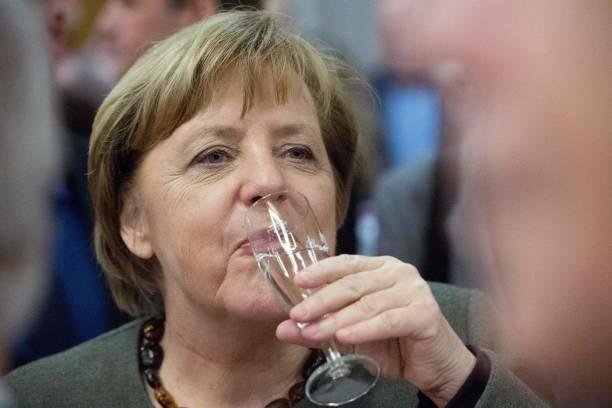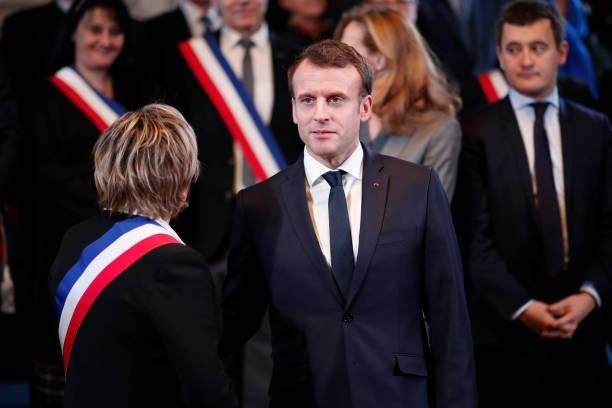COMMENTARY #03: EURO REFORMS AND THE MOTIVATION OF CHAOS

European currency union has commenced the year in bolstering form. This has set an unprecedented economic confidence in the euro area, though not without undesired consequence. In that there will be less pressure on European politicians to take steps to forestall future crises if the euro zone economy thrives more.
Although the resurgence has braced public support for the single currency, this boom facilitated by the European central bank's monetary policies will lure politicians to avoid difficult decisions strapped in deeper fusion. Additional reforms are important since the fiscal political keystones necessary for a national currency are absent in the monetary union of 19 states. Rather there is division between northern economies capable of handling the hardness of a common currency and a less capable southern economy. The ECB's loose monetary policies that has saved these weaklings is only temporal.
Emmanuel Macron's victory over populist euro-skeptics in France last year created a rare opportunity to engineer reforms. The French President envisaged his desire to stir up the Franco-german alliance instrumental to a stronger European intergration that was downsized when euro debt crisis was at its peak in 2010 and 2012, and Germany took the lead due to its stronger economy. Macron advocates specifically for a euro zone budget and a finance minister, both rudiments of a fiscal union to butress the money union.
As the reform gear was steaming in France, it's coincided with political uncertainties in Germany. First, Angela Merkel's ruling CDU/CSU party bloc experienced an unexpected downturn at the polls in September 2017. Then, the Chancellor's effort to create a coalition government with two ideologically different parties broke down in November when FDP pulled out of negotiations. 8
After the breakthrough in talks this month, it is anticipated that a renewed coalition with the left centrist SDP, with which Merkel has governed Germany for 8 of the last 12 years, is possible. But an obstacle is getting approval from SDP members; many of whom are of the opinion that the coalition has undermined their party's influence. If they fail to approve, the Chancellor is faced either with ruling as a minority government or fresh election, whose outcome may be as undesirable as last year's vote.
Even if Merkel had the tide in her favour and SDP silenced their reservations for the coalition, Macron's euro zone reform is less likely to engineer the desired progress. The German chancellor definitely wants to engage Macron who rescued Europe from the potentially dangerous effect of the populist revolt following brexit. But rather than a sincere change of heart, here response might be a gesture.
After all Merkel designated much time and effort during the crisis to avoid calls on German taxpayers to aid the monetary union recognising that this is important if Germans were to continue in the enterprise. She was strongly against the idea of issuance of euro bonds with the monetary union jointly sharing liability, and rejection was a main campaign point for her in the 2013 federal election. German policy makers also hold that the euro zone is possible without a fiscal union. Tighter fiscal bond will mean a political union and thus generate opposition in countries where changes to European treaties are needed.
Any reform this year might be more of a show than substance. Most likely is a rebranding of the European Stability Mechanism (ESM). Germany is also less likely to relish the national veto over release of funds it secured when the ESM began.
The most viable reform in the euro area this year is the banking union which started at the height of the crisis in 2012. The work here is progressive and the creation of the ECB as the single supervisor is the most concrete of the construction. A new body to ensure that failing banks go quietly without any disruption has been created. A shared system of deposit insurance, which is an important part of the banking union is still budding.

The failure to agree on a system of deposit insurance remains a challenge to the progress of the reform. With Northern countries feeling disadvantaged due to the South's perceived incapability, there is also fear particularly in Italy that bad loans may hinder the recovery that has just gathered momentum.
If the banking union is experiencing such difficulties, what then is the hope of a fiscal union. As Italians are discouraged by bad loans, the Germans and Dutch remain unmotivated to demand further fiscal sacrifices from their citizens. This was difficult when the euro area was on the verge of collapse, and it is definitely harder when things have improved.
Politicians have failed several times to utilise opportunities created by the ECB. An example is in 1999 when euro was formed and no effort was made to rectify manifest loopholes in the system. The truth is that Europe's institution building is at its best when there's crisis. Reform is predicated more on chaos than growth.